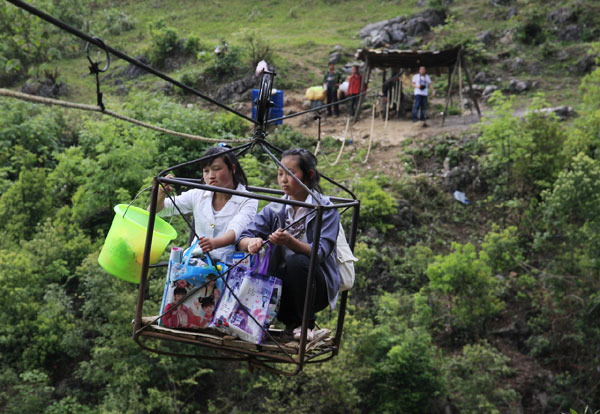To hear the President talk, you would think private business is doing just fine thank you. The truth is that some of us are still working but with less employees, less customers, and less in the paycheck. We in the private sector still have our families to feed and any retirement has been pushed up a bit.
Public projects, bridges and alike, are going on with police detail in force. What happens when they end?
Fires are down and building is down but permitting for said has gone through the roof. Permitting now involves; the planning boards, the fire departments, the building departments, the electrical departments, and yes, checks made out to all of them.
Some would say we have become complacent at best and just plan ungrateful at worse. Look around, some are still making do with what they have and proud of what they do. God did not say life would be easy but he did expect us to do some of the work ourselves and help others on the way.
China has been around for a while.
For generations, the greatest wish of the impoverished residents of Hongde was to have a bridge across the canyon.
The village, in a secluded mountainous area on the side of Beipan River, has a favorable climate, making it an ideal place for growing fruit and vegetables.
"However, a large part of our harvest ended up rotting in the field because we didn't have a safe paved road," said Zhou Chenggu, the village Party chief.
Chen Jichang, 45, said that with the 30 chickens he keeps and the 3.5 tons of sugarcane he harvests every year, and some odd jobs, he can make about 10,000 yuan a year. "I can make 3,000 yuan selling sugarcane, but transport costs a lot. If there was a bridge, I could have made double," he said.
Many villagers who talked to China Daily reporters said the same thing.
Authorities say lack of capital and concerns over environmental preservation are the two major obstacles that have held up the building of a bridge.
"We thought of building one more than 10 years ago," said Li Yong, publicity director for Shuicheng county, "but as a poor area, we had no means to collect the millions of yuan needed to build the bridge, so we could only report to the higher authority for assistance."
The per capita income of rural residents in the county was 3,273 yuan in 2010, according to the county government. "However, we later realized the key didn't lie in money," Li added.
Wumeng Canyon is one of the best-preserved canyons in the world, dominated by ecologically fragile karst landscape. The construction work would inevitably damage the fragile environment, Li said.
"Besides, the location of the liusuo is at the core of the national geology park in Wumeng Mountain, which is a top scenic spot," said Yang Mingwen, Shuicheng deputy director of publicity.
Despite environmental concerns, people's livelihoods are also a problem of urgent importance. After rounds of site inspection, the local transportation authority decided to follow the request of the villagers and chose a site about 1 km from Hui Defang's liusuo.
"That makes it possible to build a bridge with a shorter span, causing minimal damage to the environment," said Yang.
According to Zhou Yingchang, chief engineer of the county's transport department, construction of the 50-meter-long bridge with car lanes and sidewalks will be in full swing by next month, he said.
"The county government has invested 128,000 yuan and organized villagers to build a temporary steel-plate bridge, which will be replaced when the bridge is completed," said Luo Mingyuan, deputy head of Yingpan town.
As the dream of the village finally comes true, Hui's liusuo will be removed from the canyon and protected as a cultural relic.

No comments:
Post a Comment
all comments will be signed to be published